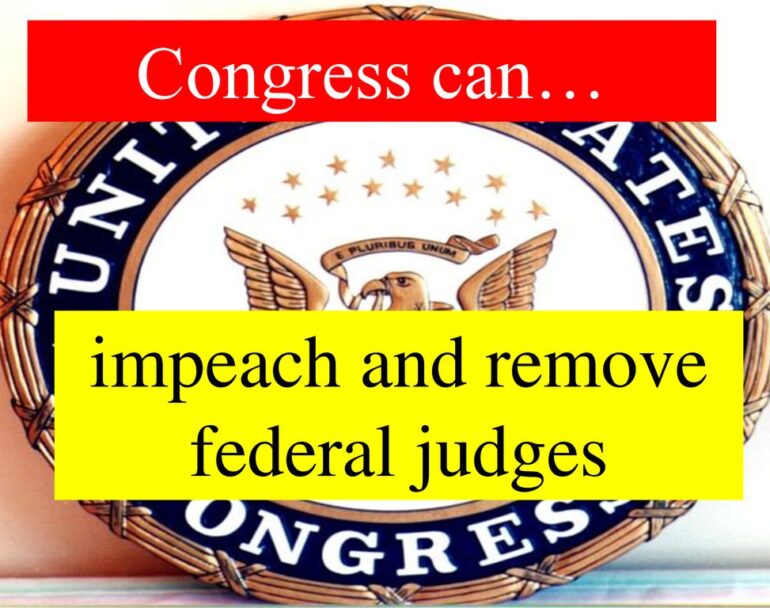
What are High Crimes and Misdemeanors?
by Jim Lewis
Judge Napolitano said in an interview on Newsmax TV back in February of this year that only crimes merit judicial impeachment. He said that “that federal judges should not be impeached based on political disagreements but only for committing high crimes or misdemeanors, aligning with constitutional principles.” On the one hand I can understand his reasoning because you cannot impeach a judge just because you don’t like a ruling he made. On the other hand, I don’t think judges should be treated differently than any other federal official when it comes to impeachments.
Reading in the Federalist Paper #65, Alexander Hamilton stated:
“A well constituted court for the trial of impeachments, is an object not more to be desired than difficult to be obtained in a government wholly elective. The subjects of its jurisdiction are those offenses which proceed from the misconduct of public men, or in other words from the abuse or violation of some public trust. They are of a nature which may with peculiar propriety be denominated POLITICAL, as they relate chiefly to injuries done immediately to the society itself.”
In Federalist Paper #66 Hamilton explains that impeachment trials are not criminal proceedings, but rather political judgments designed to remove unfit officials.
Alexander Hamilton in Federalist #65 said:
“[T]he practice of impeachments [is] a bridle in the hands of the Legislative body”
In this interview with Newsmax when asked if judges should be removed if their decisions halt the president’s ability to act Judge Napolitano said, “No, of course not,” he said. “Because the Constitution says the basis for impeachment… has to be a crime — treason, bribery, or other high crime(s) or misdemeanor(s).”
We know what treason and bribery consist of so I asked myself, “What did the Founders think high crimes and misdemeanors consisted of when writing the Constitution?
We have already seen that Alexander Hamilton said more than once that impeachments can be for political offenses, a point not argued by the other founders. But where did Hamilton, and the other founders, get this idea from?
The founders looked to history when writing and debating the Constitution. By the time the Constitutional Convention assembled in Philadelphia in 1787, the term “high Crimes and Misdemeanors” had been employed in the English practice of impeachment for more than four centuries.
They discovered that the British Parliament had impeached the King’s ministers and judges for the following “high crimes and misdemeanors”:
- Violated the constitution or laws
- Subverted the rights of Parliament or the system of government
- Abused or misused their power
- Failed to perform the duties of their office faithfully and competently
- Engaged in self-dealing behavior or misuse of funds
- Or were guilty of oppression, corruption, or other misbehavior or “maladministration”
Reflect on these categories for a moment. They describe a broad array of misconduct, not at all limited to criminality, as we today understand it.
What was considered to lie within the scope of the power of impeachment for “high Crimes and Misdemeanors” – was unquestionably broad.
If you look in Webster’s 1828 Dictionary it shows the primary meaning of “misdemeanor” to be:
- Ill behavior
- evil conduct
- Fault
- mismanagement
All of this formed a part of the backdrop for understanding of the term “high crimes and misdemeanors” at the time the framers adopted it as the U.S. Constitution’s standard for governing impeachment in 1787.
After finding this information it confirmed for me that if a federal judge is using his office to hold up executive actions he or she disagrees with, then that same judge should be liable for impeachment for “high crimes and misdemeanors” as understood by the founding generation.